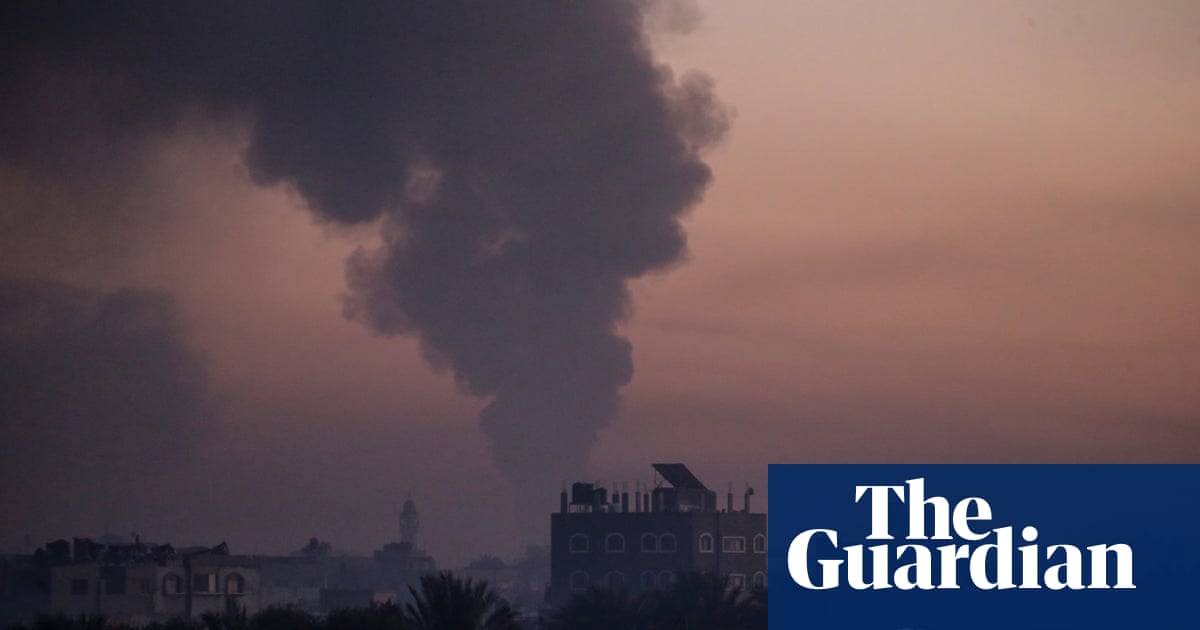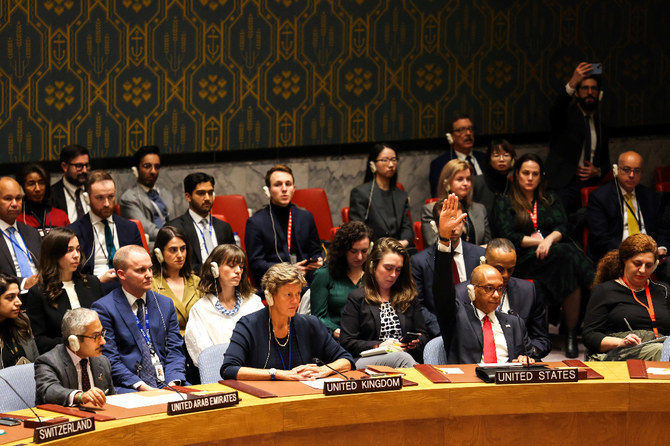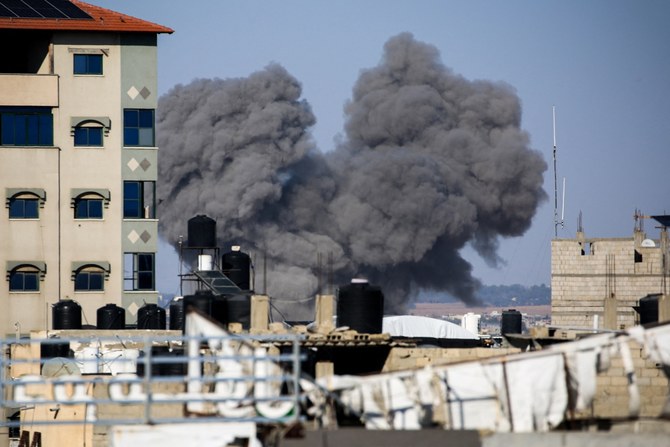
Given the horrific violence of the Gaza war, it seems crude to talk of winners and losers. Even so, as the conflict currently stands, there are few winners. The Palestinians have seen more than 26,000 people killed, a further 65,000 injured and untold damage to homes and infrastructure. While Hamas might see its continued existence despite Israel’s vow to destroy it as a success, it would be the most Pyrrhic of victories.
Similarly, Israel is struggling. Some may feel the war has avenged the shocking murders of more than 1,200 people on Oct. 7, but it has, thus far, neither destroyed Hamas nor secured the release of the remaining 132 Israeli hostages taken. Meanwhile, Israel’s global reputation has taken a hit. The International Court of Justice’s ruling that Israel must ensure it prevents acts of genocide, following South Africa’s charge, was a blow. Though Israel retains the support of Western allies — and Prime Minister Benjamin Netanyahu insists the war will continue — it is taking a toll.
But among the biggest “losers” so far is the US. Washington’s distractions in the Middle East and its own loss of credibility are not only damaging for America, but hugely beneficial to its global rival, China.
On becoming president in early 2021, Joe Biden aspired to limit the US’ involvement in the Middle East. This was something he had urged since becoming Barack Obama’s vice president more than a decade earlier. According to The New Yorker, Biden was “a strident voice of skepticism about the use of American force” in the Obama administration. He was especially reticent about using it in the Middle East, urging caution at key moments in Libya, Syria and even the raid to kill Osama bin Laden. While not advocating a full strategic withdrawal from the Middle East, Biden has long aligned with those urging for a more modest military commitment and for strategic focus elsewhere.
Washington’s distractions in the Middle East and its own loss of credibility are hugely beneficial to its global rival
Christopher Phillips
Since becoming president, Biden has put this into practice. His strategic priorities have not been in the Middle East, focusing instead on Asia and China (begun by Obama and Donald Trump) and, after 2022, combating Russia’s invasion of Ukraine. Withdrawing from Afghanistan and the ongoing discussion about drawing down from Syria and Iraq underlined this strategic shift.
Yet, since Oct. 7, these long-term strategic priorities appear to have been subordinated to supporting Israel. The US has sent aircraft carriers to the Eastern Mediterranean to deter Hezbollah, deployed airstrikes and special forces to Yemen in response to Houthi attacks on Red Sea shipping, and targeted various Iran-aligned groups in Iraq and Syria. Now, after three US soldiers were killed by a drone attack in Jordan on Sunday, the prospect of even more American military strikes in the region is growing.
It seems unlikely that Biden will authorize a major redeployment to the Middle East, certainly nothing like during George W. Bush’s “War on Terror” that Biden was so skeptical of. But at the minimum, these Middle East flashpoints are distractions from Biden’s declared strategic goals elsewhere.
Ukrainian President Volodymyr Zelensky has already warned that the Gaza war is “taking away the focus” from his country’s fight with Russia and the US certainly seems to have cooled its interest since October. Congress is reluctant to approve more funds for arms to Ukraine. Meanwhile, Biden’s drive to unite Western states against China is losing momentum. He successfully persuaded the G7 to “de-risk” investment in China in May 2023, but since the war in Gaza broke out, Biden’s efforts have been more focused on keeping Western allies supportive of Israel than facing down Beijing.
As well as distracting from the rivalry with China, and Russia, the Gaza conflict is damaging the US’ credibility in the Global South. The international court case against Israel was supported by leading representatives of the non-Western world, including the Arab League, the Organization of Islamic Cooperation, Turkiye, Malaysia, Brazil, Pakistan, Colombia and Venezuela. Yet, despite the court warning Israel against genocide, in essence upholding that South Africa’s charges had merit and warranted investigation, Washington insisted it would not change its support for Israel.
China’s narrative to the Global South has repeatedly been that the US cannot be trusted, that it is self-serving
Christopher Phillips
This prompted a wave of opinion writers in the West and Global South to charge the US as hypocritical. This legal bastion of the US-led rules-based order was dismissed because, seemingly, it was ruling against a leading US ally. After the Biden administration spent much of 2022 and 2023 urging the Global South to condemn Russia for its aggression in Ukraine, its seeming endorsement of Israel behaving similarly in Gaza only amplified the already sizable loss of faith in US global leadership.
And this, once again, benefits China. For years, Beijing has challenged Washington’s self-appointed global leadership. When the BRICS grouping expanded at the 2023 Johannesburg conference, Xi Jinping stated that the new members would help to give more of a voice to the non-Western world and weaken “US hegemony.”
China’s narrative to the Global South has repeatedly been that the US cannot be trusted, that it is self-serving and that China, as a member of the Global South itself, makes for a better ally. With Beijing already having made serious headway into parts of sub-Saharan Africa, East Asia and now the Middle East, it is an argument that has evidently found a receptive audience. China and, for that matter, Russia, have been able to point to the US’ apparent refusal to rein in Netanyahu as yet more evidence that Washington is ultimately a “colonial” force.
Compounding the matter is that China has, thus far, had to do very little to reap benefits from the Gaza conflict. While the US is deeply involved, China has been comparatively aloof. Its leaders have made statements condemning Israeli aggression and urging restraint, but mostly have focused on discrediting the US in the Global South. As a strategy, this costs it little and carries the potential for Beijing to boost its credibility because of US actions. Whether this will work in the long term remains to be seen and may depend on how the war eventually plays out. For now, however, it does seem that if anyone is “winning” the Gaza war, it is China.
Christopher Phillips is professor of international relations at Queen Mary University of London and author of “Battleground: Ten Conflicts that Explain the New Middle East.” Twitter: @cjophillips












